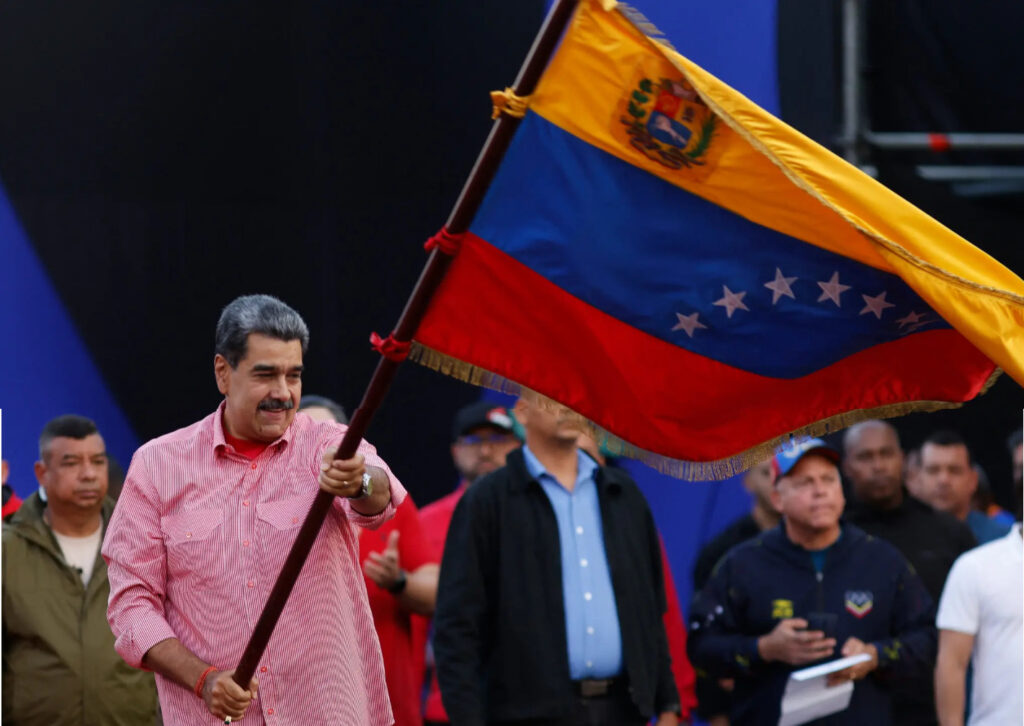SAN JUAN — With the largest U.S. aircraft carrier now positioned in the Caribbean, President Trump has approved additional measures to pressure Venezuela and prepare for the possibility of a broader military campaign, according to multiple people briefed on the matter.
Trump has signed off on C.I.A. plans for covert measures inside Venezuela, operations that could be meant to prepare a battlefield for further action, these people said. At the same time, they said, he has authorized a new round of back-channel negotiations that at one point resulted in President Nicolás Maduro of Venezuela offering to step down after a delay of a couple of years, a proposal the White House rejected.
It is not clear what the covert actions might be or when any of them might be carried out. Trump has not yet authorized combat forces on the ground in Venezuela, so the next phase of the administration’s escalating pressure campaign on the Maduro government could be sabotage or some sort of cyber, psychological or information operations.
The president has not made a decision about the broader course of action to pursue in Venezuela, nor publicly articulated his ultimate goal beyond stemming the flow of drugs from the region. And military and C.I.A. planners have prepared multiple options for different contingencies.
Military planners have prepared lists of potential drug facilities that could be struck. The Pentagon is also planning for strikes on military units close to Maduro. Trump held two meetings in the White House Situation Room last week to discuss Venezuela and review options with his senior advisers.
Any covert action by the C.I.A. would probably come before such military strikes.
Both the White House and the C.I.A. declined to comment on Trump’s order.
Even as Trump has told the C.I.A. to prepare multiple possible secret operations inside Venezuela, he has also opened up back-channel negotiations with Maduro after cutting off such talks last month for a brief time, people briefed on the matter said.
In those informal talks, Maduro has signaled a willingness to offer access to his country’s oil wealth to American energy companies.
Trump acknowledged those talks, in a fashion, on Sunday.
“We may be having some discussions with Maduro, and we’ll see how that turns out,” Trump said.
While Trump emphasizes Venezuela’s role in the drug trade or illegal immigration when he discusses the issue in public, he has discussed in private the country’s huge oil reserves and American companies gaining access to them.
Venezuelan officials have told Americans that Maduro might be willing to step down, after a transition of two to three years, according to the people briefed on the matter. Any delay in Maduro’s giving up power is a nonstarter with the White House.
But despite the apparent impasse, the back-channel negotiations show that a diplomatic solution is still possible.
People briefed on the discussions say it is not clear what outcome the president favors. Trump could agree to a diplomatic deal to gain more access to the Venezuela oil resources for American companies, he could push for a resolution that allows Maduro to voluntarily give up power, or he could demand that the United States forcibly remove the Venezuelan dictator.
Even with the endgame uncertain, the White House has settled on a strategy of ratcheting up the pressure on Maduro, while giving Trump options on how he might want to bring the campaign against Venezuela to a conclusion.
Called “Operation Southern Spear,” the massive buildup of American naval forces in the Caribbean is the largest since the Cuban Missile Crisis and the blockade of Cuba in 1962. The carrier Gerald R. Ford arrived in the Caribbean over the weekend, and there are now 15,000 troops in the region, including Marines on amphibious ships and personnel at military bases in Puerto Rico.
But the military buildup is only the most obvious of a multifaceted pressure campaign.
The State Department has announced that, effective Nov. 24, it will designate Cartel de los Soles a terrorist organization. While Cartel de los Soles is not a cartel in the traditional sense, it is a way for the Trump administration to label a broad swath of Maduro’s government a terrorism organization, potentially paving the way for military action but also pressuring the government.
Trump’s public comments in recent days have reflected the uncertainty over the endgame, even as he increases the pressure. Trump said on Monday that he had not ruled out ground forces going into Venezuela, and held out the possibility of direct negotiations with Maduro.
“I don’t rule out anything,” Trump said. “We just have to take care of Venezuela.”
The United States has launched 21 known strikes on boats that the administration says were smuggling drugs, killing at least 83 people. Trump has said ample intelligence justifies the strikes, but administration officials have not provided detailed evidence of the cargo the boats were carrying.
Those strikes have been conducted without congressional authorization, prompting criticism from legal experts and Democrats in Congress that the administration is intentionally targeting civilians who may be suspected of crimes but are not combatants.
Trump, at least after the early strikes, said the United States had targeted fentanyl, a deadly synthetic opioid that has caused tens of thousands of overdose deaths. But military officials, in closed door meetings with Congress, have acknowledged that the boats are carrying cocaine, not fentanyl.
By TYLER PAGER, JULIAN E. BARNES and ERIC SCHMITT/New York Times
Tyler Pager is a White House correspondent for The Times, covering President Trump and his administration.
Julian E. Barnes covers the U.S. intelligence agencies and international security matters for The Times. He has written about security issues for more than two decades.
Eric Schmitt is a national security correspondent for The Times. He has reported on U.S. military affairs and counterterrorism for more than three decades.

